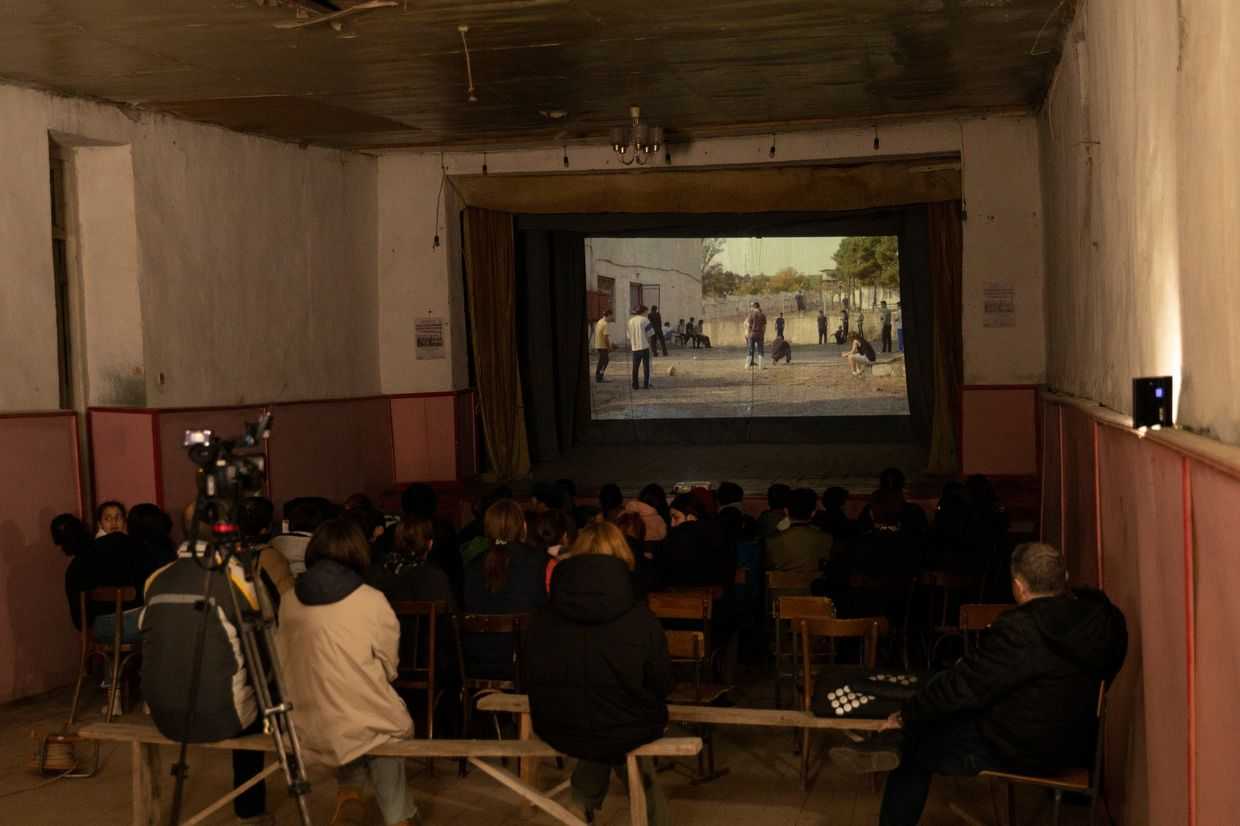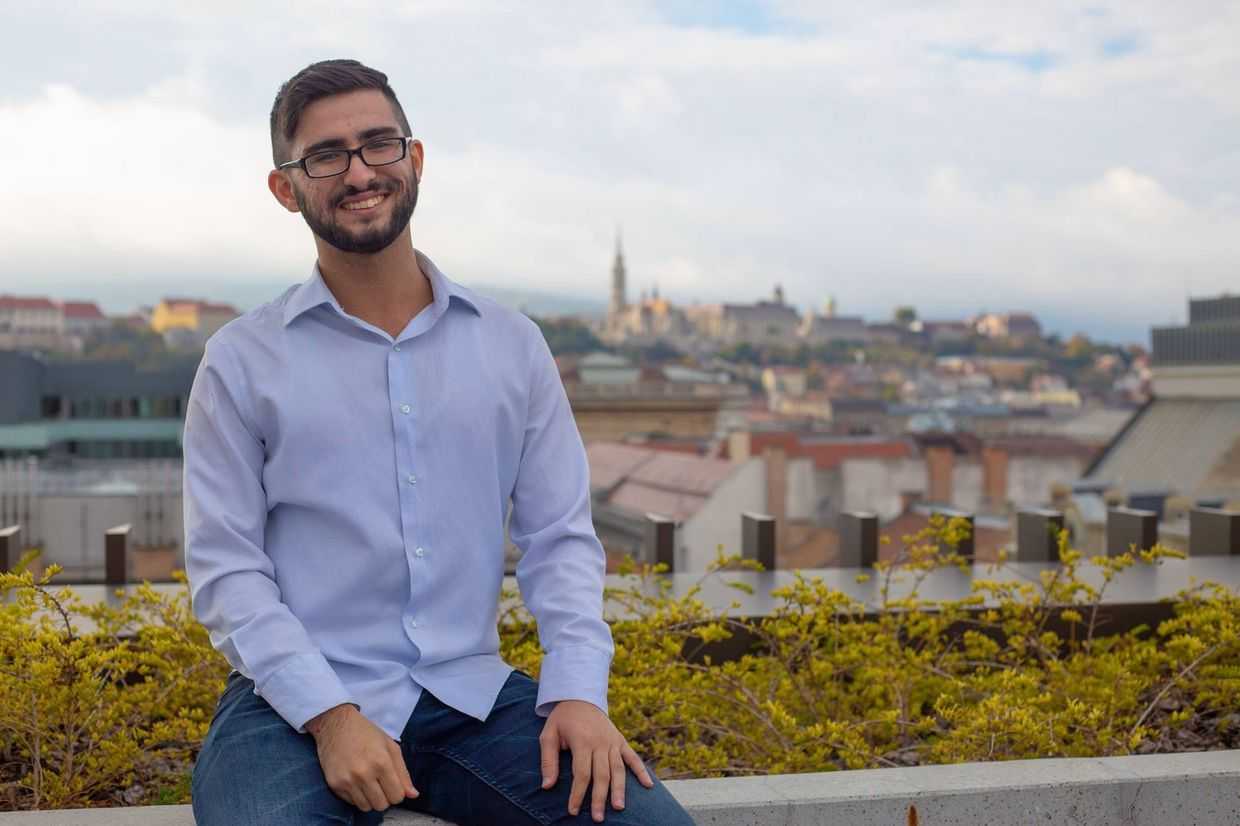
President Salome Zurabishvili, an uncompromising opposition leader during most of former president Mikheil Saakashvili’s rule, has witnessed a series of political crises since her inauguration in 2018. Now she’s on a warpath to de-escalate political tensions in Georgia.
This week, Georgian President Salome Zurabishvili met Nike Melia, chair of the largest opposition party United National Movement (UNM), to ‘pursue the process of [reaching] a national accord’.
Zurabishvili, elected with the support of the ruling Georgian Dream party in 2018, but never formally acknowledged as the winner by the UNM, has already met with most parliamentary and non-parliamentary political parties as well as civil society groups. She has insisted this month that she was on a mission to tackle political ‘polarisation’ in Georgia.
The ongoing consultations appear to be a follow-up to her 10 December pledge during the virtual Summit for Democracy, hosted by the United States, to start an inclusive ‘national conversation’ to help Georgia ‘move forward’.
Democracy is confronted by serious challenges, to the point that we could say there is a war declared against democracy. A war which we need us all to confront with more political will and determination, consensus and solidarity
My address at @POTUS‘s #SummitforDemocracy pic.twitter.com/cafDMVrYWz
— Salome Zourabichvili (@Zourabichvili_S) December 10, 2021
While most of the key actors have only expressed ‘cautious optimism’ — and some outright pessimism — about Zurabishvili’s vague quest, no one so far has refused her invitation to parley at the presidential residence, Orbeliani Palace.
The ball will eventually be in Georgian Dream’s court
For Nika Simonishvili, chair of the major local watchdog group the Georgian Young Lawyers’ Association (GYLA), the ongoing discussions should not be understood as a mere conflict between politicians, but rather as a ‘cascade of systemic problems’ in the justice and electoral system that spawns political conflicts.
‘The president’s efforts will be futile if as a result of these meetings and consultations, specific political groups, and the ruling party first and foremost, is not willing to take respective steps to overhaul state institutions in Georgia’, Simonishvili told OC Media.
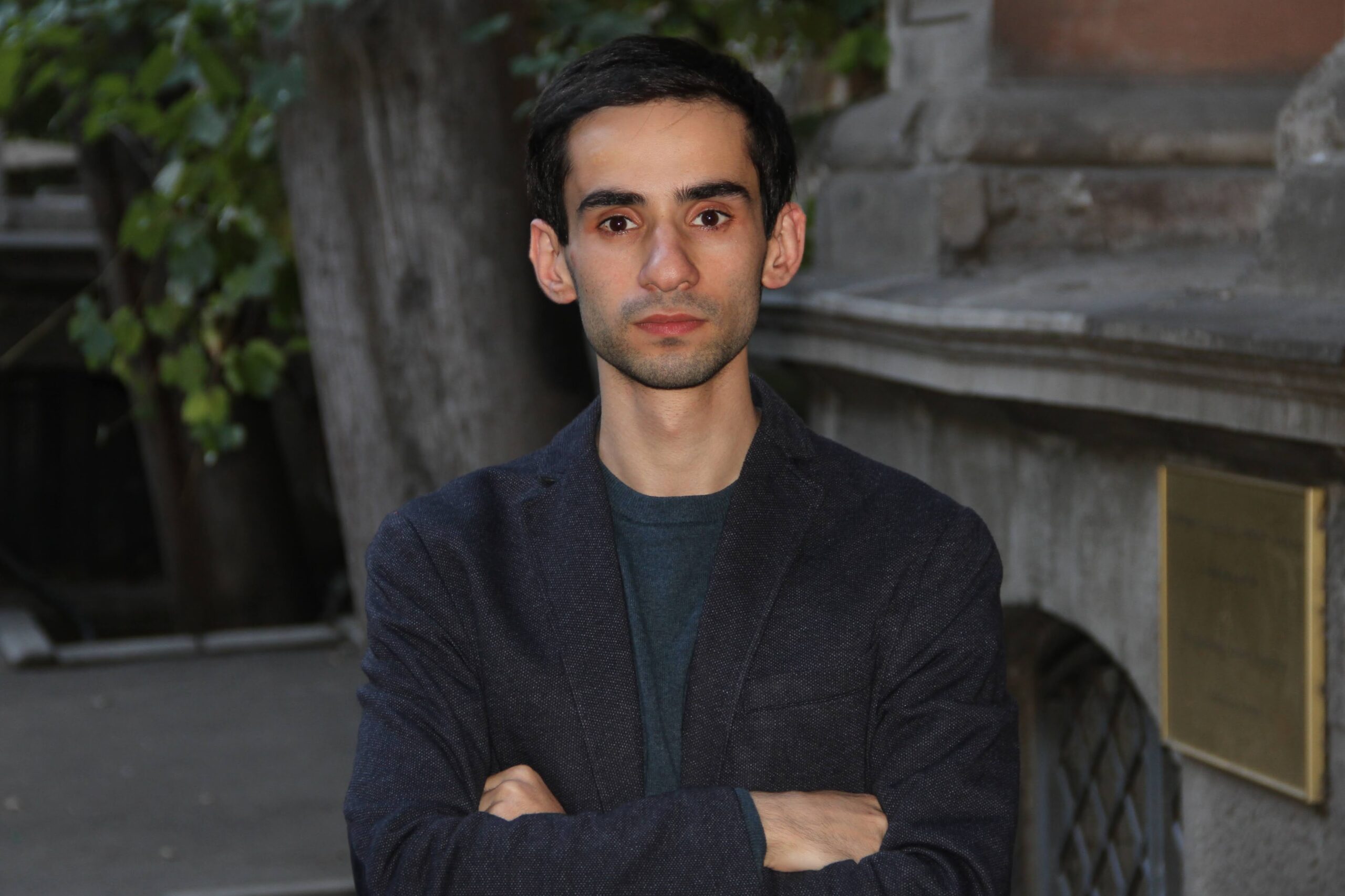
‘The current political system enables the group in the majority to make virtually any important decision without a consensus, something that we are witnessing currently’.
[Read more on OC Media: Georgian authorities move to ‘abolish’ crucial check on official abuses]
According to Simonishvili, Georgia’s political system is in dire need of power sharing and inclusive decision-making between the ruling party and the opposition.
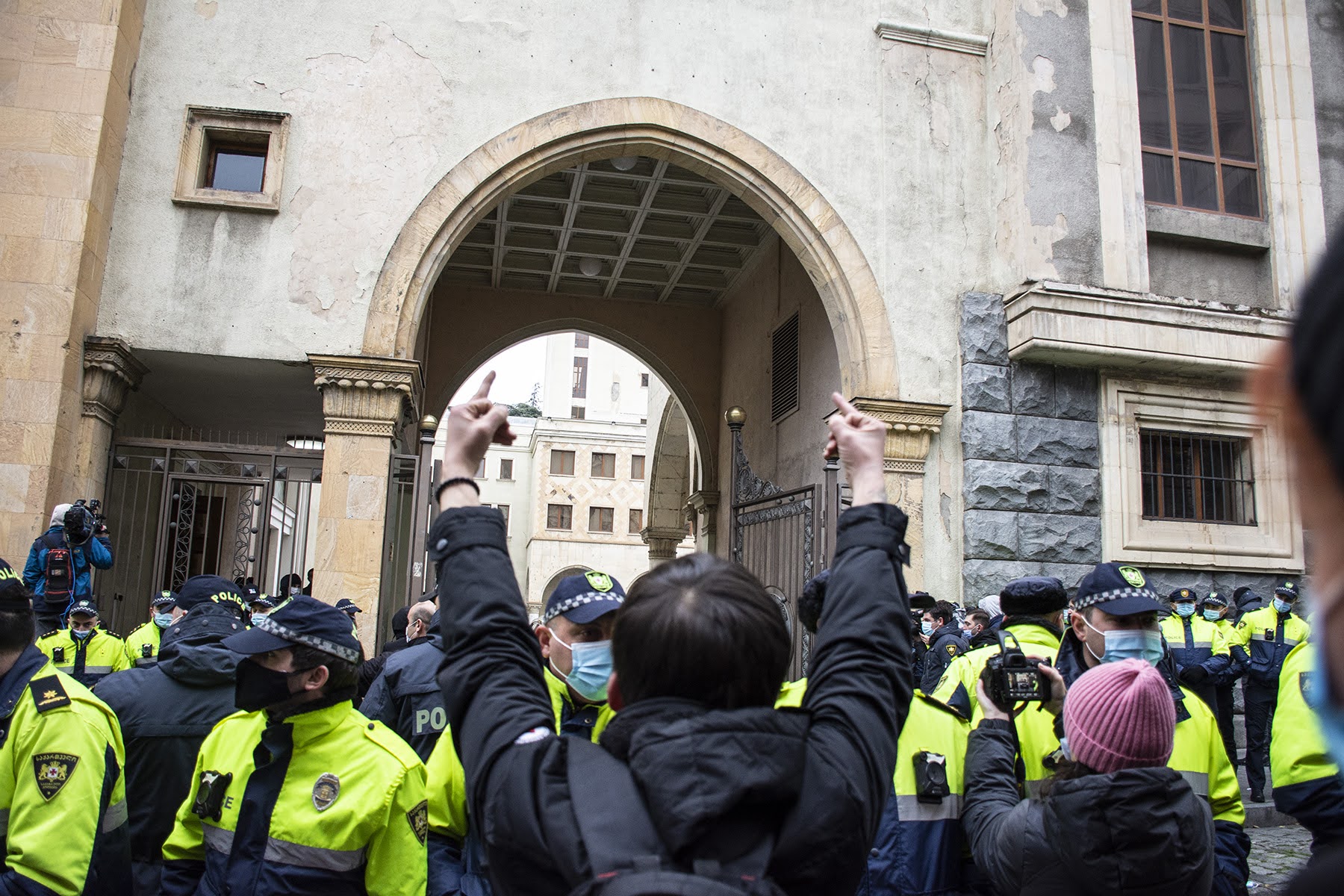
Otherwise, Simonishvili noted, Georgia will continue to face instability as the political opposition that would regularly remain marginalised from decision-making will always try to have their say or even oust the ruling party from power ‘through various means’.
So far, the leaders of Georgian Dream that have participated in several meetings with Zurabishvili have not toned down their rhetoric against the formerly ruling UNM and ex-president Mikheil Saakashvili.
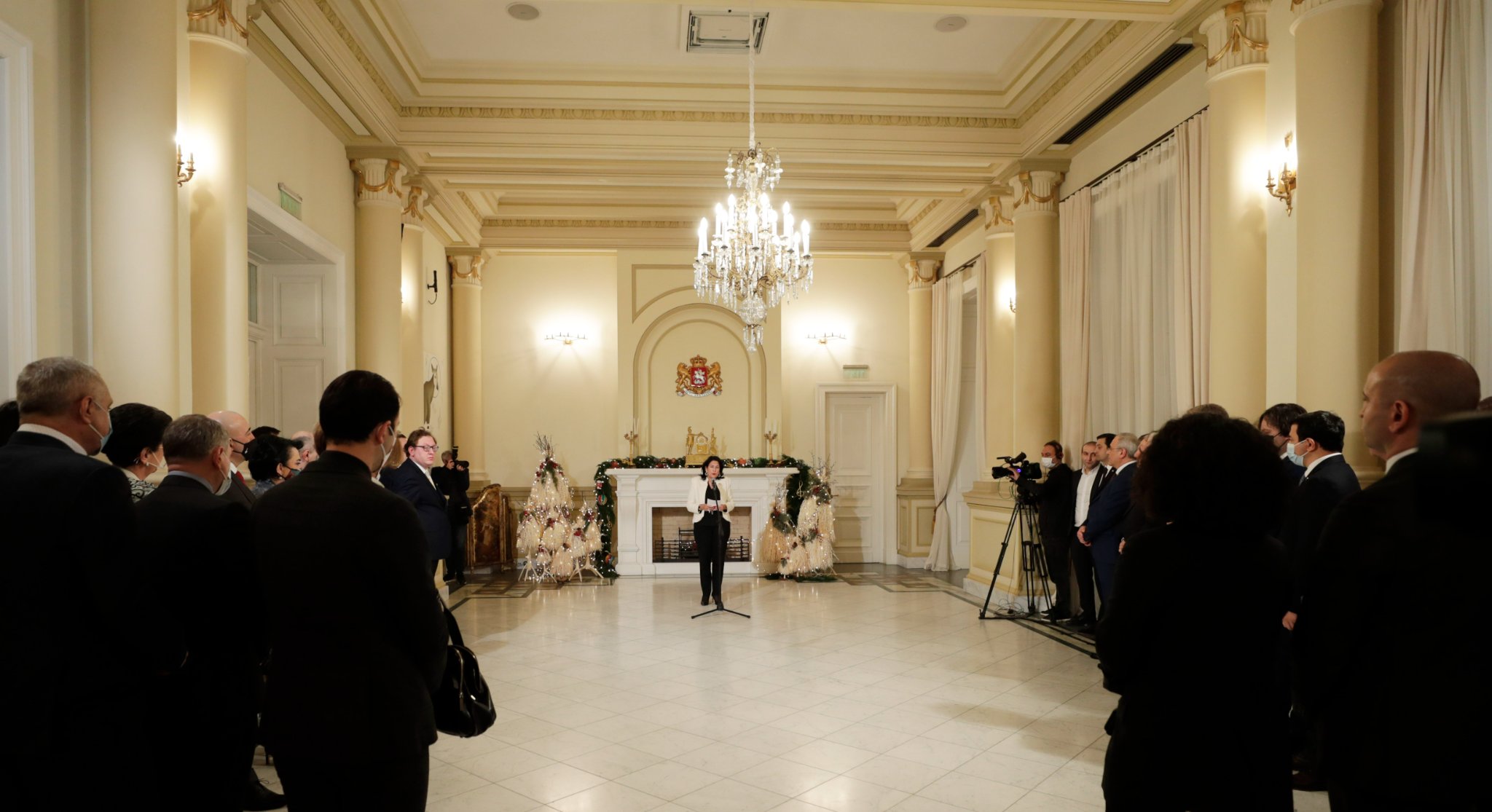
On 20 December, Georgian Dream’s Chair, Irakli Kobakhidze, went as far as to compare the UNM’s rule to Nazi Germany, while PM Irakli Gharibashvili admitted that political polarisation was ‘quite high’, albeit while shifting the blame from his party.
Recent years of national discord
Zurabishvili already had to step into 2021 with political rapprochement on the agenda by pardoning opposition figure Giorgi Rurua in April. It was her second intervention after making a similar move a year earlier to free opposition leaders Gigi Ugulava and Irakli Okruashvili.
All three were deemed as ‘political prisoners’ by most opposition groups — a series of criminal cases were launched against them for their involvement in the anti-government protests in June 2019.
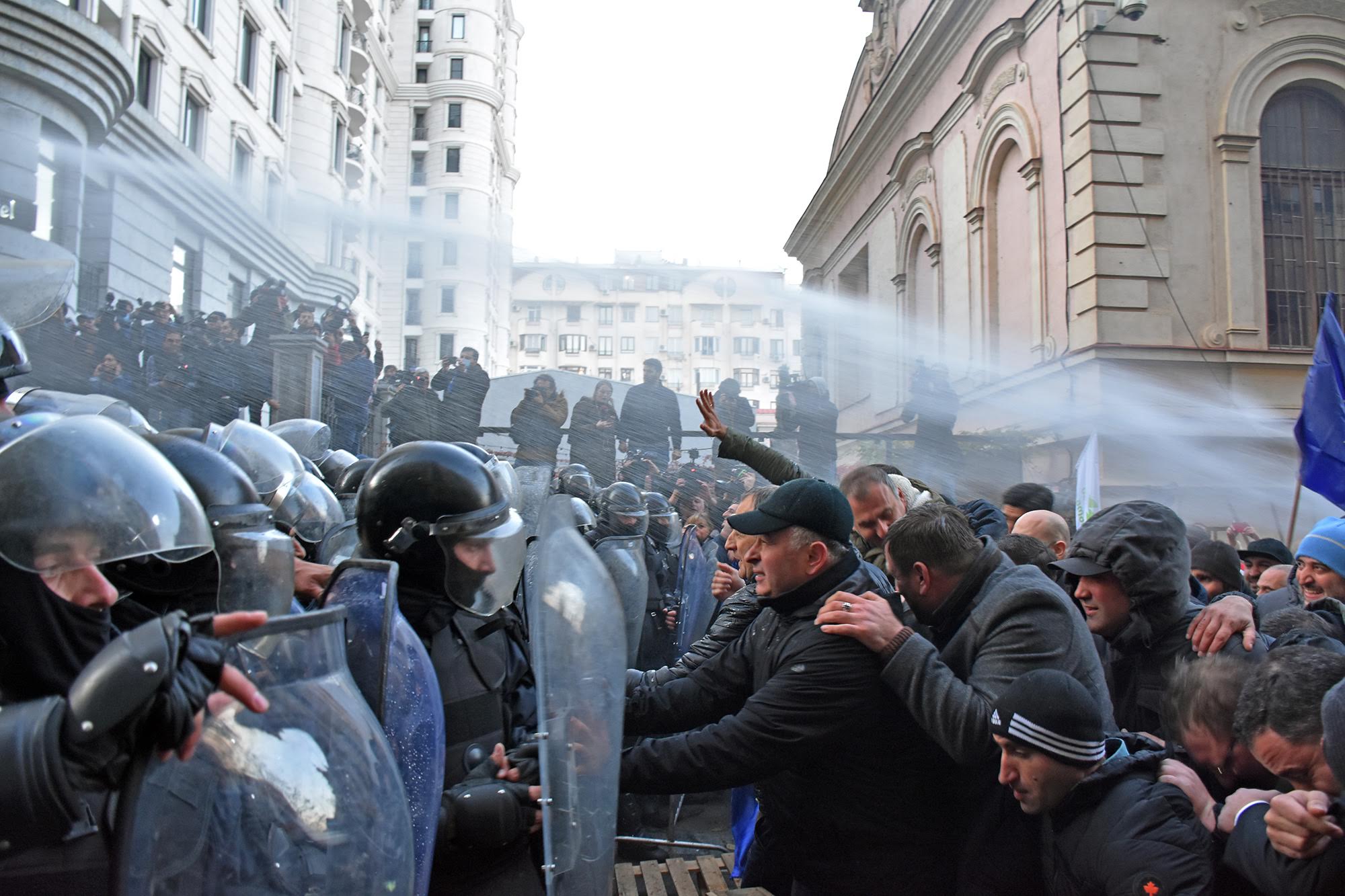
As a result of the European Union’s mediation in March 2020, the ruling party eventually reformed the country’s electoral system in favour of a proportional component, months before the 31 October parliamentary vote. The elections, however, led to allegations of fraud, resulting in a boycott by opposition groups.
Amid the renewed anti-government protests over ‘rigged’ and ‘dirty’ elections, the government moved to arrest the recently appointed UNM chair, Nika Melia, throwing Georgia deeper into political polarisation.
Renewed efforts by the EU Council President Charles Michel to reconcile the parties resulted in the April agreement this year. The agreement led to Melia’s eventual release soon after Zurabishvili’s pardon for Giorgi Rurua.
However, Georgian Dream withdrew from the agreement a mere 100 days after it was signed.
Since then, and especially with the return of former President Mikheil Saakashvili to Georgia on the eve of the local elections in late September, the fate of institutional reforms and the end of the ‘political polarisation’ has been hanging in the balance.
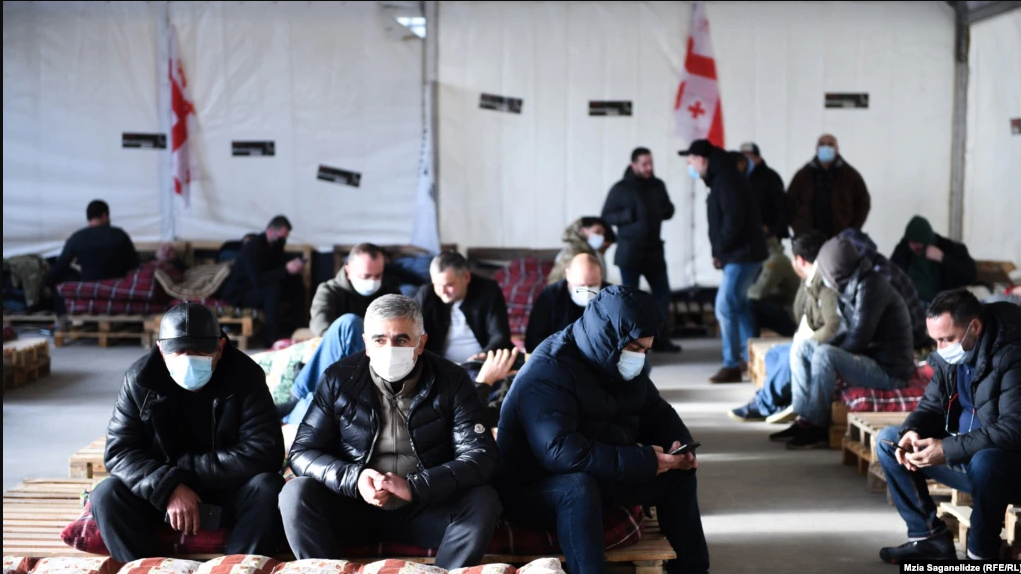
No justice, no accord
Simonishvili argues that the possible negotiations stemming from the president’s initiative should reflect the tenets of the April agreement.
Apart from indirect references that called for the release of Nika Melia and Giorgi Rurua, the EU-brokered agreement included provisions on reforming the judiciary and electoral system.
It also envisaged a more balanced power-sharing dynamic in Georgia’s parliament, including making the confirmation of the Prosecutor General by lawmakers more inclusive.
The EU delegation in Georgia and US Embassy underlined throughout 2021 that Georgian Dream’s claims of pursuing reforms were anything but the inclusive process that they had promised.
Ekaterine Tsimakuride, who was among those civil society leaders to meet the Georgian President this month, admitted she left the meeting with a sense that there was a lack of specifics.
Tsimakuridze, who chairs the reformation advocacy group Democracy Index Georgia, told OC Media that she still strongly agreed with the President that there was a need to rethink Georgia’s recent past. However, she underlined that Zurabishvili needed to come up with a specific plan to create such a platform for discussions around the past of the Georgian judiciary and future reform.
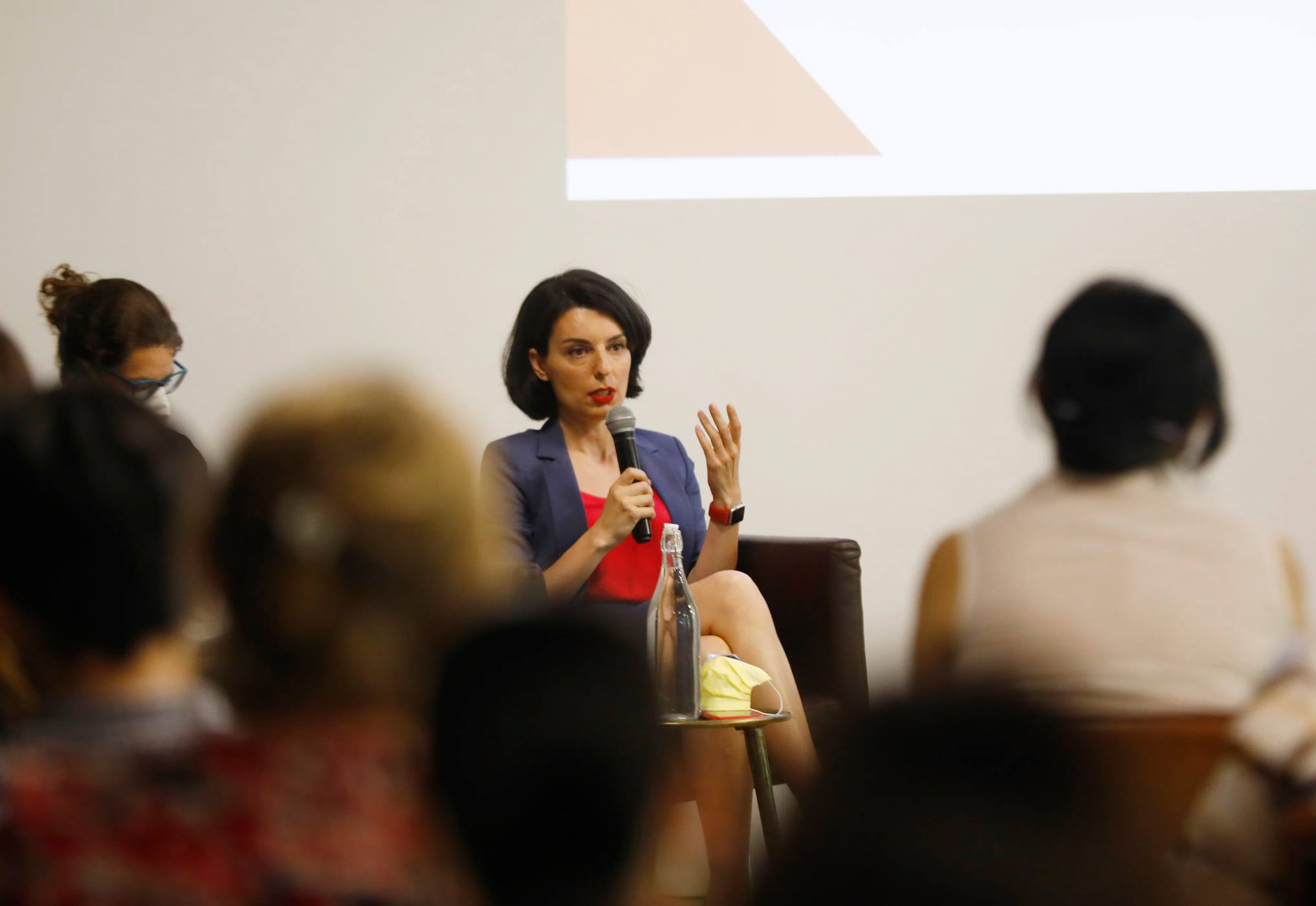
Coming up with a concrete format for it ‘would be the most important contribution from the President’, Tsimakuridze said.
‘Any problem that is on the top of the national agenda eventually leads to court, and the court should be the ultimate institution that […] will solve a problem adequately.’
The elephant in Orbeliani Palace: pardoning Saakashvili
After Saakashvili’s arrest on 1 October — the prelude to his 6-year prison term for two counts of abuse of power — Salome Zurabishvili said she would ‘never’ pardon him.
But since announcing her latest mission to reconcile the political spheres of Georgia, Zurabishvili has hosted guests at her residence that her administration vaguely described as ‘victims of the system’ and ‘groups working on victims of torture’.
These included some unrelenting critics of Mikheil Saakashvili and his UNM government who were ousted from power in 2012 following a prison torture scandal.
The mission for a ‘national accord’, and the meetings like those at Orbeliani Palace, sparked concern among die-hard opponents of Saakashvili about a possible pardon for the ex-president.
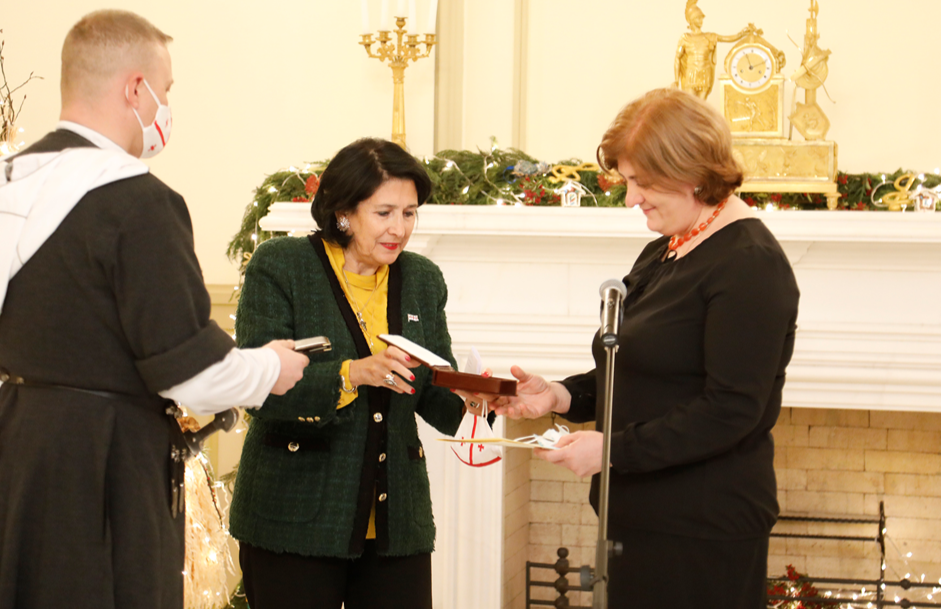
[Read on OC Media: The 2007 crackdown — Saakashvili’s greatest mistake?]
‘A very particular narrative is crucial here’, Ekaterine Tsimakuridze told OC Media regarding a hypothetical scenario that Zurabishvili has a change of heart on pardoning Saakashvili.
‘If she argues very clearly why she would pardon him, if she clarifies that our justice system is politicised and is unable to endure political pressures, and explains it well to the public, it would certainly be a good push both for rapprochement and judicial reforms’.
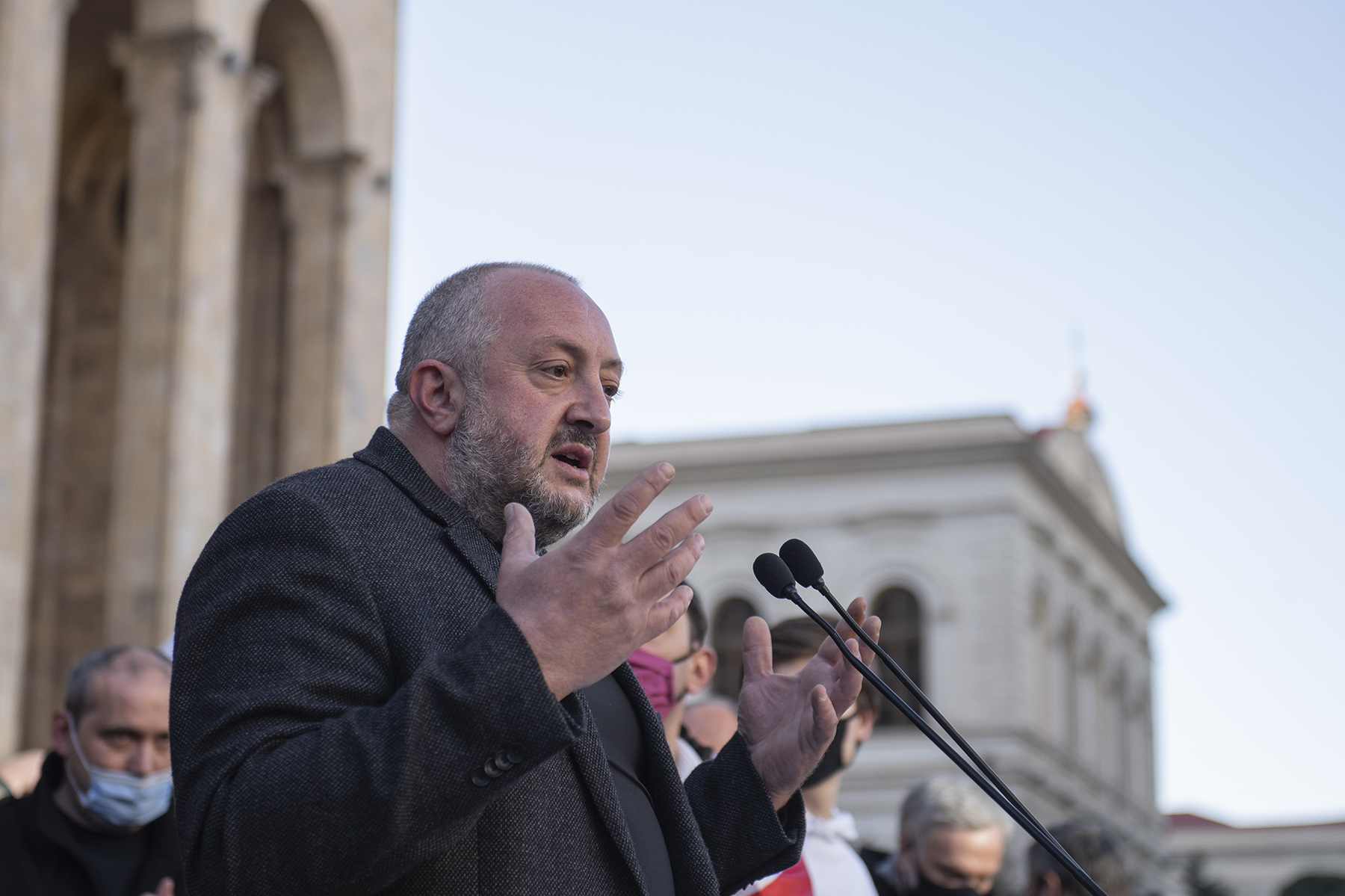
In case Saakashvili’s fate is part of the negotiations, a hypothetical solution according to GYLA’s Chairman Nika Simonishvili, would have the ex-president serving his prison term and being tried on additional charges after the ruling party overhauls the judicial system.
‘Even if Saakashvili is freed through some mechanism, we end up with a similar problem until the court, prosecutor’s office, and the entire judiciary becomes independent’, he said.




